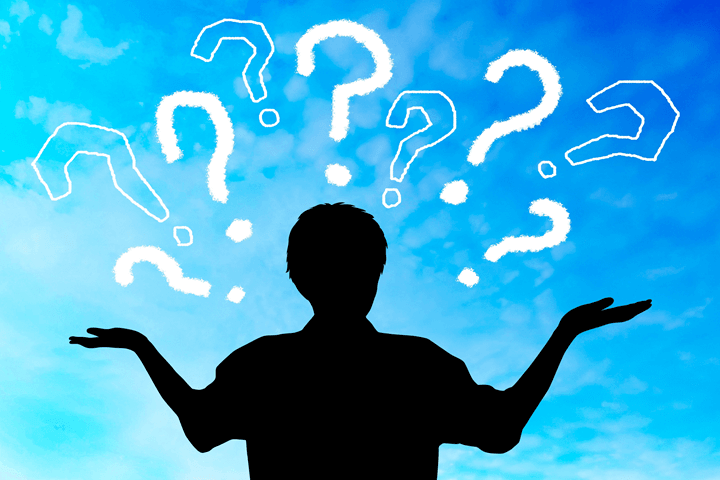“I’m not sure.” “Beats me.” “Heck if I know.” “I have no idea.” Just as there are many ways to say “I don’t know in English, there are many ways to say it in Arabic. However, why are there so many different ways in both languages to simply say that we do not know something and kind of beat around the bush with these seemingly softer phrases? Well, we don’t know – and there’s nothing wrong with that.
Researchers seem to know the answer, however.
You see, researchers say that, from an early age, we are taught that it’s not okay to be wrong, and with that comes a sense of shame if we are. As a result, we always try to be perfect and admitting we don’t know something means we fail in achieving that goal. For example, if an employee tells his boss “I don’t know”, then his boss might see him as incompetent. When taking a test, rather than admitting we don’t know the answer, we often just guess. Better guessing than getting a lower score and “losing” to someone else, right?
Nonetheless, there are going to be plenty of times when you’ll have to say “I don’t know” while you’re learning Arabic. After all, it’s not your mother tongue and you’re not going to know every word in the Arabic vocabulary. So, what can you do to get over the shame of saying “I don’t know” in Arabic?
Well, the best thing to do first is to learn how to say “I don’t know” in Arabic. The table below shows you how to do just that in a handful of different Arabic dialects:
How to Say “I Don’t Know” in Different Arabic Dialects
|
Dialect |
Arabic |
Transliteration |
|
Modern Standard Arabic |
لا أَدْري/ لا أَعْرِف |
/laa ʼadree/ /laa ʼaʻrif/ |
|
Egyptian |
مَعْرَفْش |
/maʻrafsh/ |
|
Saudi Arabian |
ما أدْري |
/maa ʼadree/ |
|
Palestinian/Jordanian |
بَعْرَفِش |
/baʻrafsh/ |
|
Iraqi |
ما أَدري |
/maa ʼadree/ |
|
Syrian |
ما بَعْرِف |
/maa baʻrif/ |
Now that you’ve got the Arabic vocabulary for “I don’t know” under your belt, researchers say the next step is letting go of the idea that questions are a test of how smart you are. This way you can rid yourself of the shame of not knowing straight away. Stop worrying about being seen in a negative light and instead, take these opportunities to learn more about something you don’t know. After all, you’re knowledge of anything, including Arabic, is dynamic. That is, you have the ability to change your “I don’t know.” into an “I know!” Once you figure out you can learn anything you put your mind to – and again, that means Arabic, too – and you realize that the learning process means that you’re going to make mistakes, then you’re well on your way to learning Arabic (and anything else you want to learn, too).
Don’t know Arabic but want to learn? Well, it’s never been easier to learn all you need to know when you learn Arabic the right way with the Kaleela Arabic language app.
Download it today and see for yourself how fun and easy learning Arabic is with Kaleela. Visit our website at kaleela.com now for more information!




